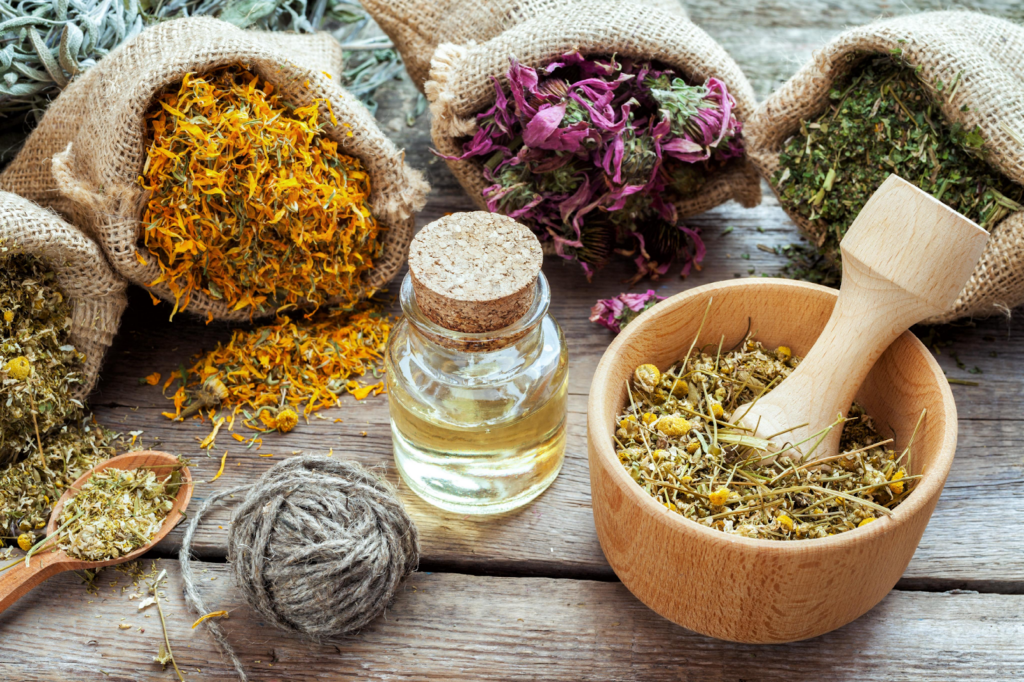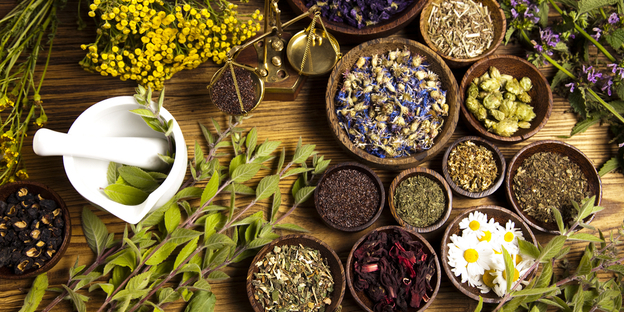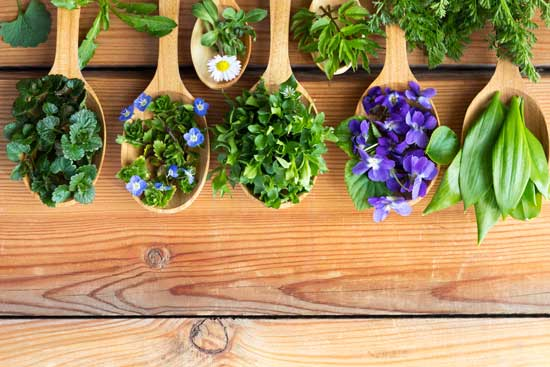
Herbal supplements are popularly used as natural health boosters but their safety is not always guaranteed. One needs to know the risks they pose and how they interact. This guide will look into common misconceptions about herbs and why it is important to use them consciously in order to avoid any negative effects. Now let’s get into what you should know before combining herbs.
What are common herbal interactions with medications?
Herbal interactions with medications can include altered drug efficacy or increased side effects. For example, St. John’s Wort can reduce the effectiveness of birth control pills, while ginkgo biloba may increase bleeding risk with anticoagulants. Always consult a healthcare professional before mixing herbs with prescription drugs.
There are also common interactions with herbs like garlic and ginger, which increase bleeding risk when taken with blood thinners. Other herbs, such as valerian root, can enhance the sedative effects of medications used for anxiety or insomnia and may cause excessive drowsiness.
Such interactions underline the fact that mixing herbs with medications is a serious matter that needs professional consultation, more so for those taking multiple medications or having predisposed conditions.
How do herbal supplements interact with over-the-counter drugs?
Herbal supplements can interact with over-the-counter drugs by either enhancing or diminishing their effects. For instance, echinacea may affect the metabolism of certain cold medications, while ginseng could increase the risk of bleeding with aspirin. It’s crucial to seek advice from a healthcare provider before combining them.
Other common interactions include St. John’s Wort decreasing the effect of allergy medications, whereas licorice root interferes with the function of diuretics. Such interactions may lead to side effects that may appear all of a sudden or lower the therapeutic outcome of the over-the-counter medications.
Understanding probable interactions and guidance from experts would safeguard one in using both herbal supplements and over-the-counter drugs safely as well as effectively.
Can mixing herbs lead to adverse effects?
Yes, mixing herbs can lead to adverse effects such as toxicity, allergic reactions, or interference with other treatments. For instance, combining kava with other sedatives can cause excessive drowsiness. Understanding each herb’s properties and consulting with a healthcare provider can help prevent these negative outcomes.
Furthermore, the activity of some herb combinations could be enhanced, thus creating health problems such as high blood pressure or digestive disturbances. Other herbs, like comfrey, can also result in liver damage overdose, poisoning, or when combined with other hepatotoxic substances. The possible side effects call for awareness of the use of herbal remedies, much more in their combination.

What herbs should not be mixed with antidepressants?
Herbs like St. John’s Wort and ginseng should not be mixed with antidepressants as they can cause serotonin syndrome or reduce drug effectiveness. These interactions can lead to serious side effects, emphasizing the need to consult with a healthcare professional before combining any herbal supplements with antidepressant medications.
St. John’s Wort is especially known to interact with selective serotonin reuptake inhibitors, leading to increased levels of serotonin, hence, it is dangerous. Other herbs, such as kava, increase the sedating side effects of some antidepressants, resulting in excessive sedation. People taking antidepressants should always consult healthcare providers before using herbal supplements because of these potentially dangerous interactions.
How do herbal teas interact with medications?
Herbal teas can interact with medications by altering absorption rates or enhancing side effects. For example, licorice tea may increase blood pressure, affecting antihypertensive drugs, while chamomile can enhance the effects of sedatives. It’s advisable to consult a healthcare provider when consuming herbal teas alongside medications.
Other examples of interactions include peppermint tea absorption and the effects of green tea on anticoagulant drugs. Interactions diminish the effect or enhance the toxicity of the administered medication. Therefore, there is a need to be aware of herbal tea–medicine interactions. Any person on medication needs to consult a professional before taking herbal tea as part of a daily routine.
What are the risks of combining herbal supplements with alcohol?
Combining herbal supplements with alcohol can amplify sedative effects, leading to increased drowsiness or impaired judgment. Herbs like valerian and kava are particularly risky when mixed with alcohol, as they can enhance liver toxicity and depressant effects. Always seek medical advice before combining alcohol with herbal supplements.
Such interaction can also provoke increased pulse rate, dizziness, or nausea, hence maximizing the effects of alcohol intake. In some cases, the co-ingestion of herbal supplements and alcohol enhances the risk of liver damage or aggravates pre-existing liver conditions. Having such knowledge of risks and seeking professional advice on safe usage can ensure safe co-ingestion of herbal supplements and alcohol.

How do herbal interactions affect heart medications?
Herbal interactions with heart medications can lead to altered heart rates or blood pressure levels. For instance, garlic supplements can increase the effects of blood thinners, while hawthorn might enhance heart medications’ actions, risking adverse cardiovascular events. Consulting a healthcare provider is essential before combining these treatments.
Other herbs, such as ginseng, interact with medications that treat high blood pressure and can cause hypertensive episodes. This is extremely harmful to patients who already have cardiovascular diseases because the medication can exacerbate the condition or lead to various complications.
Accordingly, patients are advised to disclose the use of herbal supplements to doctors and other healthcare professionals to prevent potential interactions with heart medications.
Are there specific herbs to avoid during pregnancy?
Certain herbs should be avoided during pregnancy due to potential risks to the fetus, such as uterine stimulation or hormonal effects. Herbs like black cohosh, dong quai, and pennyroyal can pose dangers during pregnancy. Pregnant individuals should always consult with a healthcare professional before using any herbal supplements.
On the other hand, other herbs on the list include goldenseal, where the latter can be detrimental to fetal development; aloe vera may further cause uterine contractions. The above risk factors also suggest that pregnant women will need to consult with healthcare providers at all times before deciding to take herbal medications for their own safety and in the womb.
Conclusion
To sum up, herbal supplements such as Holy Basil have a wide range of advantages for personal health but still need caution when dealing with them. Understanding potential interactions and risks ensures safe usage. Prior consultations from doctors are crucial before embarking on any herbal regimen so that individual needs will be met thus assuring safety too.
